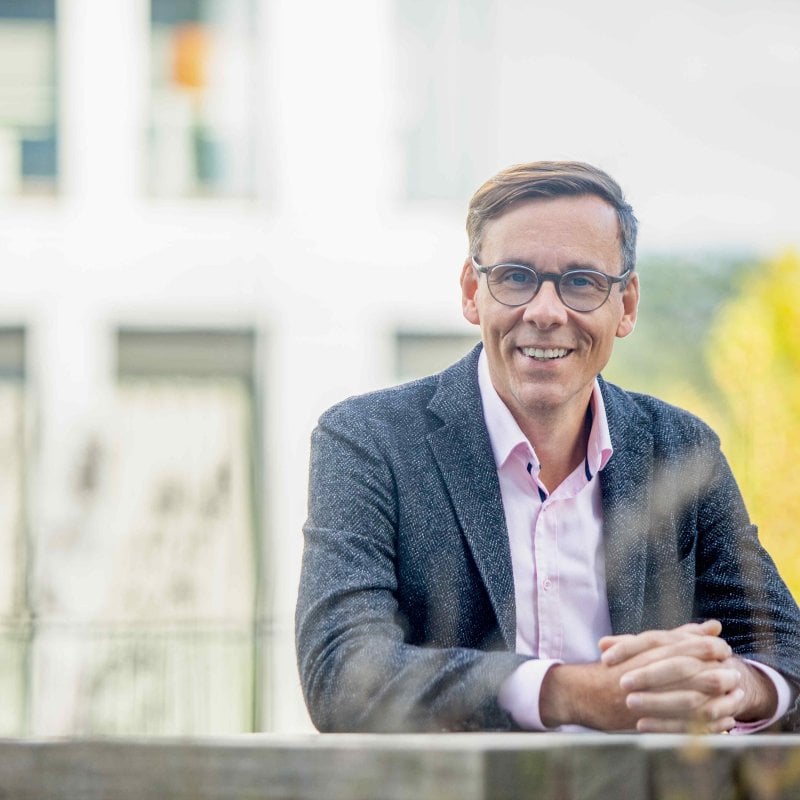Sven Preger
About the researcher
Sven was born in the Ruhr area in 1979. He studied journalism and politics in Dortmund and Stockholm, followed by a traineeship at public service broadcaster WDR in Cologne. After graduating, he worked as a freelance journalist for almost two decades, including as a news editor (radio & TV) and author of complex fictional and documentary stories. He has also worked extensively as a director and trainer.
His productions include ‘The Hitchhiker’ (WDR), one of the first major German-language podcast series. Subsequently, he was chief reporter of the narrative science podcast ‘Quarks Storys’ (WDR), host of ‘Deep Talk’ (Deutschlandfunk Nova) and head author of ‘Tatort Kunst’ (Deutschlandfunk). He has published the textbook ‘Storytelling for Radio and Podcast’. He is head of Podcast at NZZ since November 2023.
He is now recognised as a leading storytelling and podcast expert, trainer, lecturer and speaker. He has worked for public service broadcasters in Germany and advised major media companies such as Süddeutsche Zeitung, DER SPIEGEL and RTÉ. Sven finished his training as a systemic business coach in 2014.
Research interests
- Audio Storytelling & Serials
- Podcast Studies
- Investigative Journalism

PhD abstract
Thesis title
How we tell true stories: Analysis of storytelling techniques in factual narrative German podcast serials
Abstract
Research Question
What is the impact of the different storytelling techniques used in factual narrative German podcast serials?
Subject area, aims and objectives
This research project applies narrative theory to podcast studies to analyse differences in factual storytelling podcasts. It will focus on German serials and contribute to knowledge in three ways: 1. Building a deeper understanding of different storytelling traditions, approaches, and techniques. 2. Forming a methodology to analyse storytelling podcasts. 3. Help forming a better understanding of the form “factual narrative podcast”.
Research context
Podcasts started in the early 2000s with a variety of forms. Since the beginning of the second podcast wave in 2014/2015 (Hancock & McMurtry 2018; Spinelli & Dann 2019), not only have the production and distribution of podcasts increased significantly, but also their popularity amongst users (after a short pandemic break, the number of users is increasing again, Newman et al. 2022).
In recent years, moreover, standards for production and immersive narration have become increasingly established (Berry 2022). In this context, English-language narrative podcasts have been singled out especially and often mentioned as a reference (Abel 2015, Nuzum 2019, Biewen et al. 2017, McHugh 2022), e.g. ‘Serial’ or ‘Radiolab’.
Nowadays Anglophone storytelling techniques are meeting well established narrative traditions in Europe , posing a threat of flattening out diversity in storytelling.
Methodology
This research focusses on investigative podcasts as a genre with an in-depth analysis of around 6-8 serials. It will include deconstructing narrative structure, storytelling techniques, presentation, host interaction and sound design.
In addition, and based on the analysis, experts will be interviewed to provide a deeper insight into the narrative approach of the makers. The recorded interviews will be used to produce a (multi-part) podcast.